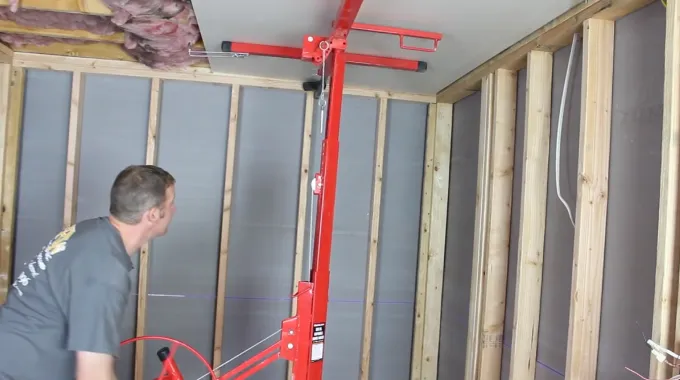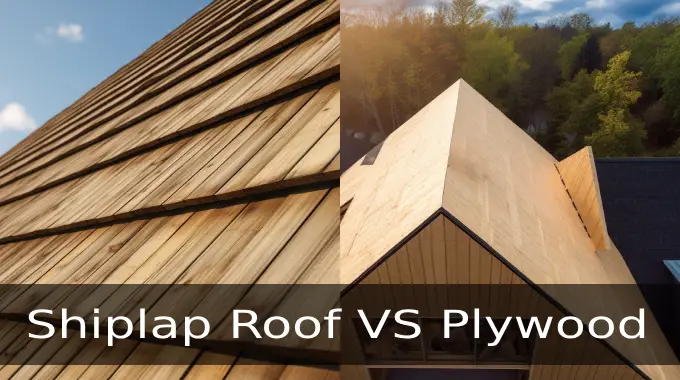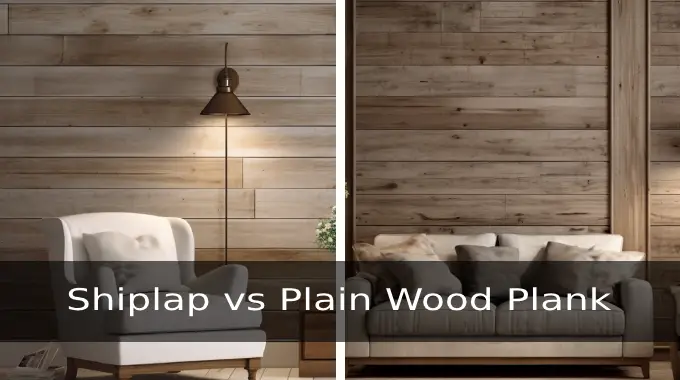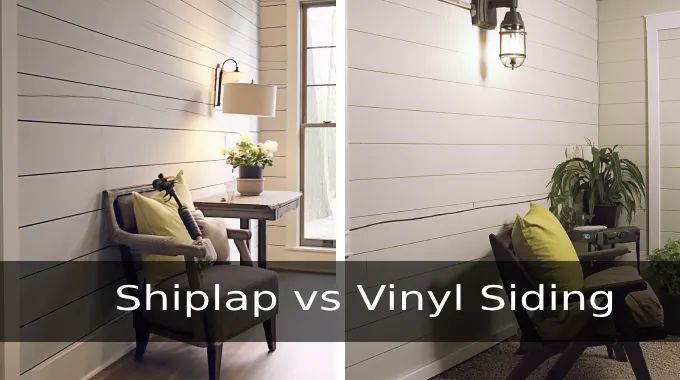Last Updated on July 30, 2023
You face a unique decision for your next ceiling project: 5/8 drywall. As its name suggests, this material may cost a bit more than other varieties but can ultimately provide added peace of mind for the job.
Homeowners who use 5/8 inch drywall benefit from several perks, including increased stiffness and fire resistance. For a superior finished surface, 5/8 inch drywall is the way to go. Withstanding humid environments or near showers without succumbing to water damage makes this thicker drywall board great value in terms of long-term cost savings as well.
When considering soundproofing or fire rating requirements for a home renovation, 5/8″ drywall panels may be worth the extra effort and cost. But don’t just take our word for it. Here we explore why this type of material might make your ceiling more secure.
Why 5/8 Drywall on Ceiling is the Default Standard for Most Applications?
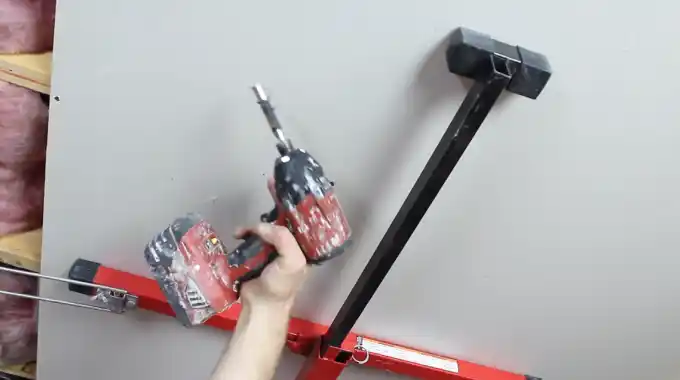
When considering a ceiling material, the most common option is 5/8 inch drywall. This type of drywall offers numerous benefits and is an ideal choice for both residential and commercial buildings.
From improved fire resistance to an effective acoustic barrier, there are many advantages of using 5/8 drywall for your ceiling. Let’s explore why it’s the go-to material for most applications in more detail.
1. Stiffer:
5/8 inch sheetrock provides structural support and rigidity, far superior to 1/2 inch sheetrock. The thickness helps reduce bowing between joists, especially when on 24” centers. This ensures a safe and secure installation with minimal risk of failure or movement over time.
Moreover, the added stiffness helps prevent cracks that may form due to thermal expansion or other factors. As such, 5/8 inch sheetrock is the preferred option when installing ceilings in areas prone to temperature swings or earthquakes due to its superior resilience and strength.
2. Fire Resistance:
In addition to providing structural integrity, 5/8 inch sheetrock also has considerable fire resistance capabilities due to its thicker construction.
Fire-rated 5/8 inch gypsum board can provide a minimum of 1 hour of protection against flames and heat. It allows plenty of time for firefighters to enter the building safely if a fire breaks out.
Fire-rated gypsum board also helps contain fires by limiting their spread throughout the building, helping protect other areas from lasting damage caused by heat or smoke exposure.
3. Acoustic Barrier:
The additional thickness of 5/8 inch sheetrock also makes an excellent acoustic barrier between floors in multi-level buildings.
The thicker construction blocks sound from traveling upward from below while still allowing airflow. This creates a comfortable thermal environment within living spaces at any given time of year without sacrificing sound quality or comfort levels between rooms above and below one another.
Additionally, its greater mass helps with noise control by absorbing more sound than its thinner counterpart, making it a great choice for walls and adjacent noisy appliances like air conditioners and washing machines.
4. Heavy Surfacing Materials:
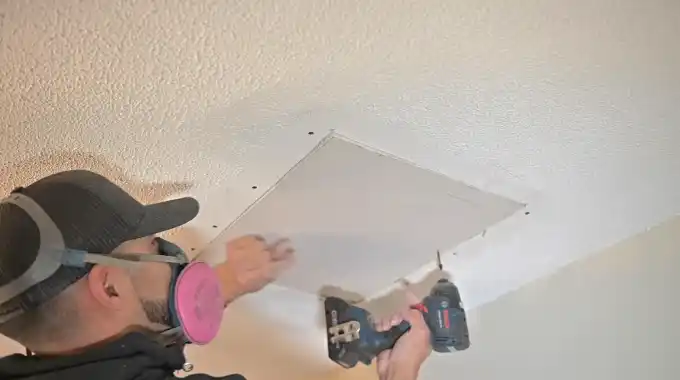
When working with heavier materials like popcorn ceiling texture or stucco finishes, 5/8 inch sheetrock can handle more weight than 1/2 inch drywall before succumbing to sag or buckling under pressure.
Its added thickness adds stability that allows heavier decorative surfaces to be applied without compromising structural integrity. For intricate ceiling designs, this is especially useful without worrying about the underlying structure supporting heavy textures.
5. Smoother Finish Overall:
The thickness of 5/8 inch drywall helps create a smoother finish by eliminating inconsistencies between studs that might otherwise appear on thinner materials. This uniformity also gives walls a more polished look once they are painted and decorated.
6. Water Resistant:
Since 5/8 inch drywall has a thicker layer of protection against moisture exposure or temperature changes, it prevents water damage better than other materials. Due to moisture absorption or fluctuations in air temperature within the room, bulging bubbles or warping are less likely to occur over time.
This makes it ideal for bathrooms or basements where moisture in the air could pose a risk to your walls and ceilings if not properly protected against these elements.
7. Long-Term Cost Savings for Homeowners:
While other drywall options may seem initially cheaper, 5/8 inch versions provide superior protection against water damage and warping for the long haul. What might look like a higher price tag upfront is actually an investment in wise-spending that saves time, effort, and money down the road!
Additionally, because they offer better soundproofing capabilities thanks to their thicker layer of mass, homeowners won’t need to worry about spending extra money on additional soundproofing materials as well.
Disadvantages of 5/8” Drywall for Ceilings
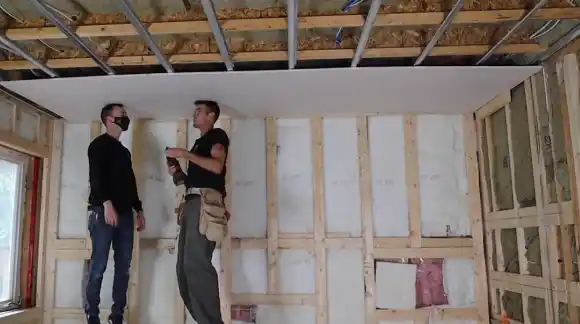
Using 5/8” drywall for ceilings is becoming increasingly popular, but there are some significant drawbacks to this material choice.
Most notably, it has a much higher initial cost, can lead to higher labor costs during the installation process, and may be difficult to find in certain areas. Let’s check these drawbacks of 5/8” drywall for ceilings in more detail.
1. Increased Initial Cost Compared To 1/2” Drywall
One of the main drawbacks of using 5/8″ drywall for ceilings is its high initial cost. While the actual cost per panel is often only a few dollars more than 1/2″, the total cost quickly adds up when purchasing large quantities.
In addition, due to its larger size, it generally requires more panels to cover the same area as 1/2″, resulting in an even higher bill. The higher price tag also extends beyond just materials. Tools such as screws and nails designed specifically for thicker walls are typically more expensive as well.
2. Additional Labor Costs Associated with the Installation
In addition to increased material costs, installing 5/8″ drywall can also result in additional labor costs. Because of its weight, it requires more time and care when installing compared to 1/2″, meaning that it takes longer for each panel to be put into place and secured correctly.
Furthermore, due to its weight, it poses a greater risk of damaging existing ceiling joists or frameworks during installation, increasing both labor costs and safety concerns.
3. Limited Availability in Some Areas
5/8″ drywall is unavailable everywhere, especially in remote areas or areas far from major cities. In the absence of the material, homeowners or contractors may experience difficulty finding it, resulting in delays in their projects.
Moreover, additional transportation fees may be associated with obtaining the product from a farther distance, depending on the location. This adds yet another layer of cost to an already expensive project requirement.
When Should You Use 5/8 Drywall Panels?
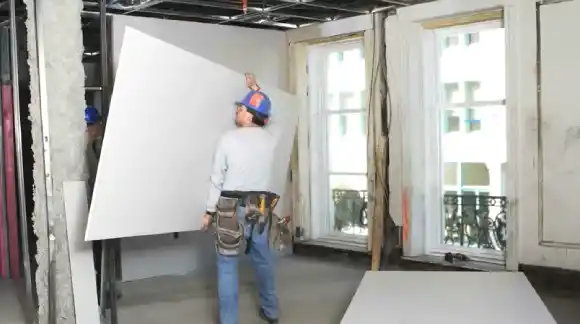
When it comes to soundproofing, fire-rating, and impact resistance, having the correct type of drywall panel can make all the difference in achieving the desired outcome. 5/8” drywall is a particularly effective choice due to its added mass and density.
1. Areas with Increased Soundproofing Needs:
5/8″ thick drywall should be considered when extra sound insulation is needed. Homes that are close together or opposite of each other from a street view often need more soundproofing due to their proximity.
You may want to consider using 5/8” drywall if you live in an apartment building or a densely populated residential area. It also works well in commercial settings that are in close proximity, such as restaurant kitchens or any other area where there is loud noise occurring daily.
2. Fire-Rated Applications
5/8″ thick drywall is also a great choice for any fire rated applications that require additional protection against fire spread throughout buildings.
This type of wallboard meets National Building Code requirements for fire separation walls and partitions that divide living spaces in multi-family dwellings such as condos and apartments as well as schools and hospitals requiring higher levels of safety.
The thicker wallboard provides improved heat resistance by adding an additional layer between two combustible materials which helps slow down the rate at which flames can spread through rooms and across floors.
3. Impact Resistant Applications
For places that need extra impact protection from damage, 5/8″ thick drywall is the ideal choice. This added layer of strength makes it perfect for garages and machine shops where a few bumps in the wall can cause more than just an eye sore.
Even if you’ve got something less intense going on, like storage facilities, playrooms, or basements, this thicker drywall will give your walls much appreciated additional strengthening.
How Heavy is 5/8 Drywall?
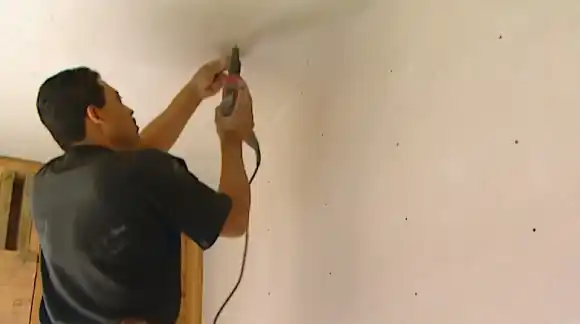
The average weight of 5/8″ USG Sheetrock Firecode panels is 2.2 lb./sq. ft., which is significantly heavier than the 1/2″ drywall panel’s weight of 1.5 lb./sq. ft. Note that for a given size, the additional weight added by the 5/8″ drywall panel is due to its increased thickness compared to the 1/2″ drywall panel.
Should You Use 1/2 or 5/8 Drywall for the Ceiling?
Using a 5/8” sheetrock panel for ceilings is better because it is thicker and, therefore, stiffer than its 1/2” counterpart. The additional stiffness keeps the ceiling from sagging after installation and makes certain kinds of installations, such as curved walls or tapered ceilings, easier.
What is Code For Ceiling Drywall?
Most local building codes usually dictate a minimum thickness requirement for ceiling drywall panels of at least half an inch (1/2″) thick.
The primary reason for this requirement is safety since thicker panels provide better support against vibrations caused by wind, earthquakes, and other external forces that can cause structural damage or collapse if they are not properly supported.
Use 5/8” Drywall for Quality Construction and Fire Resistance Features
If quality is a priority for your home, look no further than 5/8” drywall. With this higher-grade paneling providing an extra layer of stiffness and fire resistance, you can get soundproofing or other certified applications that provide added protection as well as a smooth finish.
With the potential for long-term cost savings due to its water resistance and durability, 5/8” drywall should always be taken into consideration when looking at building materials.
Although drywall material costs and availability can be challenging with these panels, the overall benefits make them worth seriously considering when choosing what type of drywall best suits your home.
